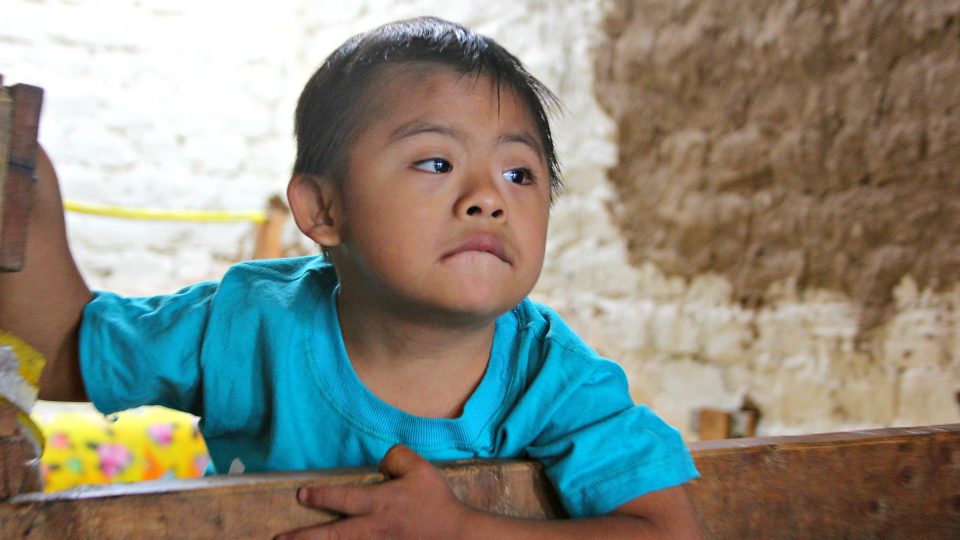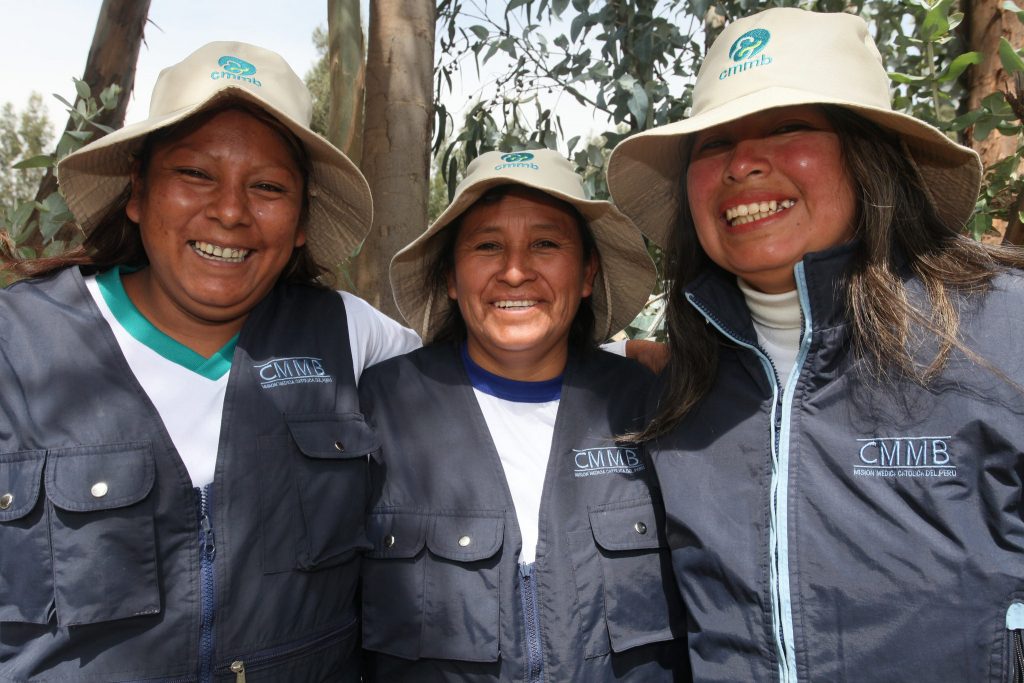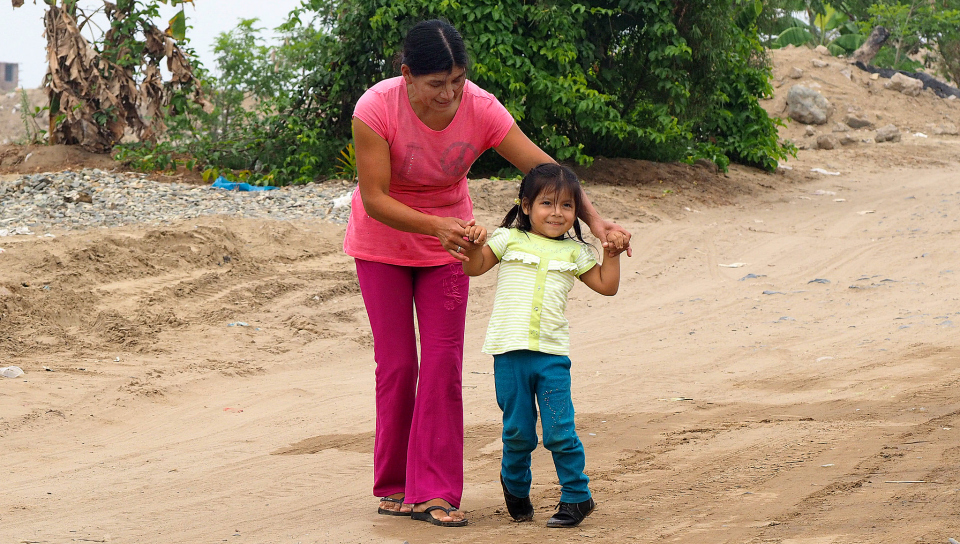Making the Right to Health a Reality in Peru

After 18 months of therapy and care, five-year-old Juan Elias is starting to communicate with his family.
By Ariel Frisancho, MD, MSc, CMMB Country Director, Peru
Although Peruis classified as a middle-high income country, Peruvian society suffers from stark inequalities. These inequalities deeply affect the poorest and most vulnerable women and childrenwho suffer a lack of access to essential social services like healthcare, education, and economic opportunities.
The factors directly affecting the health of women and children also contribute to their future development. Vulnerable women living in poverty continue to die during childbirth; children all too often die from diarrhea or respiratory infections. In other parts of the world, these illnesses were overcome by modern medicine hundreds of years ago.
Poor women also suffer from discrimination when they go to health facilities. They may be judged as unworthy of care because they:
- are indigenous people
- lack education
- speak a native language
- are from a low socio-economic background
- are women
- don’t have power
Poor health is a burden for the poorest families.
While some maternal and child health indicators have been improving, Peruvian society is challenged by chronic malnutrition and anemia among children and pregnant women. CMMB’s First 1,000 Days program, implemented in close alliance with Bon Secours Health System and Bon Secours Sisters congregation, is taking into practice the core principles of a Primary Healthcare approach to address the social factors that contribute to current malnutrition and anemia. The solution requires more than just a clinical response. Our work with families includes:
- Improving access to safe water and sanitation
- Educating families with healthy practices for home self-care
- Supporting improved nutrition under a culture-oriented learning model
- Empowering families with microeconomic initiatives
- Creating conditions for empowerment of families of children with disabilities
- Improving timely access to healthcare services with improved quality
- Improving community health services’ referral systems for emergency care
The impact of the First 1,000 Days program on children living with chronic malnutrition and anemia has been incredible. Economic opportunities mean a small increase in income that is used to buy better more nutritious food. Parents are proud that they have the knowledge and resources to contribute to their children’s health and development.
While needy families are our main partners, working with community health workers is critical.
As part of CMMB’s Children and Mothers Partnerships (CHAMPS) initiative, we understand that CMMB Peruis one actor that needs to facilitate partnerships to support poor women and children. Through our strategic alliance with Bon Secours Sisters, we work with community health agents, public health teams, teachers, municipality officers, and others who are very interested in seeing how the improvements that we are making in families could be extended to other realities. While needy families are our main partners, working with community health agents is critical. They are people, mostly women, from the community and can teach their peers how to improve family health.

In Trujillo, community health workers are trained, trusted leaders who bring quality care and respect to those most in need.
However, Peruvian society still needs to overcome many challenges to ensure that the right to health is a reality for everybody. When CMMB began working in the vulnerable areas of Trujillo and Huancayo, our team uncovered a shocking truth:children living with disabilities were “invisible”. Not only were these children invisible within their own communities, but they were also completely without access to many state services. State services are not available for children living with disabilities in rural areas. The stigma experienced by the mothers of these children is terrible. It is not uncommon for husbands to abandon families, blaming their wives for the child’s disabilities.
The mothers and families of children with disabilities frequently suffer from poverty.
The mothers must dedicate a tremendous amount of time just caring for these children. They don’t have time for a job or other economic opportunities. They also suffer from societal discrimination. Their neighbors may accuse them of doing something wrong or in some way being responsible for their child’s disability.
When CMMB began working with children with disabilities, most of them were hidden inside their homes without access or interaction to the outside world. They did not attend school, receive healthcare, or even have a national identity document—the necessary tool to access social services. Outside of their immediate families, very few even knew these children were alive.

A tragic accident left Luz Pamela brain damaged. Her mom, Grimaldina, and CMMB therapists have been working for years to make these first steps possible.
In 2014, CMMB began a project of community-based rehabilitation, know as Rehabilitación con Esperanza (Rehabilitation with Hope). Teams of physical and speech therapists bring care and skill directly to the poorest families, in their homes, where they live. Mothers and other caregivers are taught how to support the development, progress and potential of their children. With this kind of care, we have seen children who were told that they could never ever overcome their physical challenges, take their very first steps after years of therapeutic work.
Our teams have watched mothers so shamed by stigma that they couldn’t communicate with others, begin to lose their fear.
We see the benefits first-hand, in the faces and hearts of families in Huancayo and Trujillo, when they come together to share challenges and realize they are not alone. Mothers and fathers realize that having special children makes them special parents, as they call themselves. By joining together, the families of children with disabilities work to overcome shared problems, and contribute to the betterment of the health and life of their children.
Our dream is to share the success that CMMB Peru is having on improving the lives of vulnerable women and children in Huancayo and Trujillo with more communities in Peru that need support. We hope that by working with the Ministry of Health and the health authorities, we can shape public policies, making a greater, sustainable impact for all women, children and communities in need.
Contributor: Ariel Frisancho, MD joined CMMB in 2015, bringing 25 years of experience working in the Peruvian international health co-operation and social development sectors. Ariel has consulted with key organizations on rights-based approaches, citizen participation, health governance, and accountability. He also is a contributing author on  these issues for international publications such as The Lancet International. In 2013, Ariel was selected as a member of World Bank’s Civil Society Consultative Group for Health, Nutrition and Population. Ariel is a medical doctor and holds a MSc degree on Health Policy, Planning and Financing from the London School of Economics and Political Science/London School of Hygiene and Tropical Medicine.
these issues for international publications such as The Lancet International. In 2013, Ariel was selected as a member of World Bank’s Civil Society Consultative Group for Health, Nutrition and Population. Ariel is a medical doctor and holds a MSc degree on Health Policy, Planning and Financing from the London School of Economics and Political Science/London School of Hygiene and Tropical Medicine.